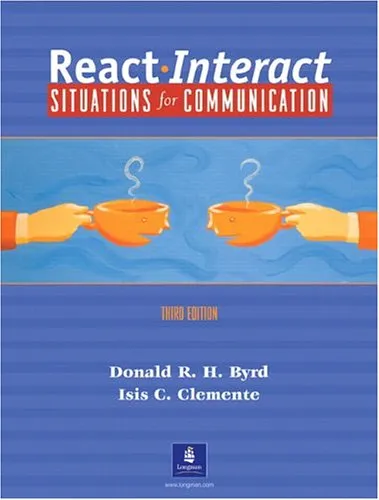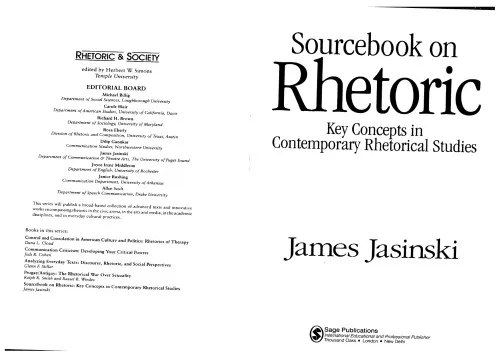Peers, pirates, and persuasion: rhetoric in the peer-to-peer debates
4.0
Reviews from our users

You Can Ask your questions from this book's AI after Login
Each download or ask from book AI costs 2 points. To earn more free points, please visit the Points Guide Page and complete some valuable actions.Related Refrences:
Introduction
Welcome to "Peers, Pirates, and Persuasion: Rhetoric in the Peer-to-Peer Debates", a thought-provoking examination of the contentious discourse surrounding peer-to-peer (P2P) file-sharing networks. This book delves into the complex rhetorical forces driving public opinion, legal narratives, and cultural attitudes concerning digital piracy and information exchange in the modern age.
As digital technology reshapes the way we consume and share media, peer-to-peer platforms have emerged as both an enabler of innovation and a battleground for ethical and legal confrontations. Whether heralded as the champions of free information or vilified as the harbingers of piracy-driven chaos, peer-to-peer systems represent a multifaceted phenomenon that transcends simple binaries. This book aims to analyze the persuasive strategies employed by various stakeholders—from corporations and lawmakers to developers and creators—to influence the debate.
By weaving together rhetorical analysis, case studies, and cultural critique, this book provides readers with fresh insights into the ideological tensions that underpin the peer-to-peer debates. It raises questions about ownership, creativity, access, and freedom, inviting readers to consider how language and persuasion shape our understanding of technology, rights, and community in the digital age.
Detailed Summary of the Book
The book is divided into several key sections, each exploring a unique aspect of the peer-to-peer debate. The opening chapters provide a historical perspective on the rise of peer-to-peer networks, charting the early days of Napster and other pioneering systems that disrupted traditional industry models. By examining these pivotal moments, the book uncovers the underlying fears and aspirations that have fueled divergent interpretations of what these platforms represent.
The heart of the book focuses on the rhetorical strategies employed by different stakeholders. Corporations argue for robust intellectual property protections to combat piracy, employing narratives of creative destruction and economic harm. Conversely, proponents of peer-to-peer platforms use the language of democratization, innovation, and cultural freedom to advocate for their legitimacy. These opposing arguments are explored in depth, with a keen eye for the emotional appeals, ethical frameworks, and logical reasoning that underpin them.
Subsequent chapters pivot to the role of media coverage, public policy debates, and cultural commentary. By analyzing how narratives around P2P sharing are framed in the public imagination, the book reveals the subtle mechanisms of persuasion that shape societal attitudes. Case studies, such as the legal battles surrounding Napster and BitTorrent, contextualize these broader discussions, illustrating the far-reaching consequences of rhetorical choices.
The concluding chapters address the implications of this debate for the future. By questioning traditional notions of intellectual property and reexamining the ethics of information sharing, the book challenges readers to grapple with foundational questions about access, innovation, and justice in the digital era.
Key Takeaways
- Rhetoric is central to shaping public and legal discourse around peer-to-peer technologies.
- Peer-to-peer platforms reflect deep societal tensions between access to information and control over intellectual property.
- Stakeholders use emotional, ethical, and logical appeals to persuade audiences and influence policy decisions.
- The debate over P2P sharing is not just about technology; it encompasses broader issues of freedom, creativity, and corporate power.
- Understanding the rhetoric behind these debates empowers individuals to critically evaluate digital culture and its future trajectory.
Famous Quotes from the Book
"Information is power, but in a digital era, the lines between power and piracy often blur."
"The debate over peer-to-peer sharing is not simply a legal argument; it is a cultural reckoning about who controls the flow of ideas."
"Rhetoric is the silent engine driving every triumph and every failure in the war over P2P networks."
Why This Book Matters
In an age dominated by information exchange and digital innovation, "Peers, Pirates, and Persuasion" provides a vital framework for understanding the cultural and legal battles that shape our lives. This book matters because it challenges readers to think critically about the way we define ownership, creativity, and access in a rapidly evolving technological landscape. By highlighting the rhetorical strategies that influence these debates, it equips its audience to navigate the complex terrain of digital rights and responsibilities with greater clarity and nuance.
Whether you're a student of communication, a legal scholar, a technology enthusiast, or someone simply curious about the dynamics of the digital world, this book offers profound insights into matters that affect us all. As we confront new challenges in the age of streaming, artificial intelligence, and blockchain technologies, the lessons of this book remain as relevant as ever.
Free Direct Download
You Can Download this book after Login
Accessing books through legal platforms and public libraries not only supports the rights of authors and publishers but also contributes to the sustainability of reading culture. Before downloading, please take a moment to consider these options.
Find this book on other platforms:
WorldCat helps you find books in libraries worldwide.
See ratings, reviews, and discussions on Goodreads.
Find and buy rare or used books on AbeBooks.













